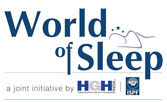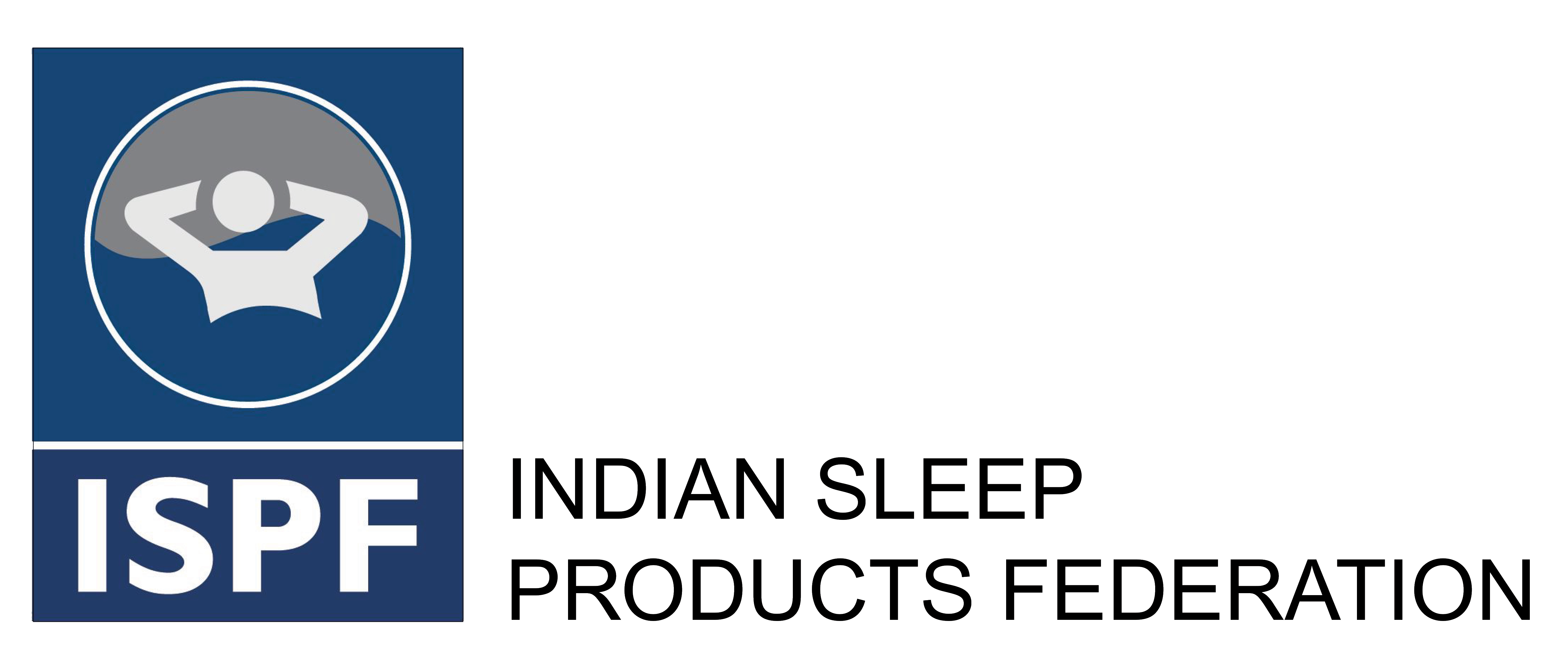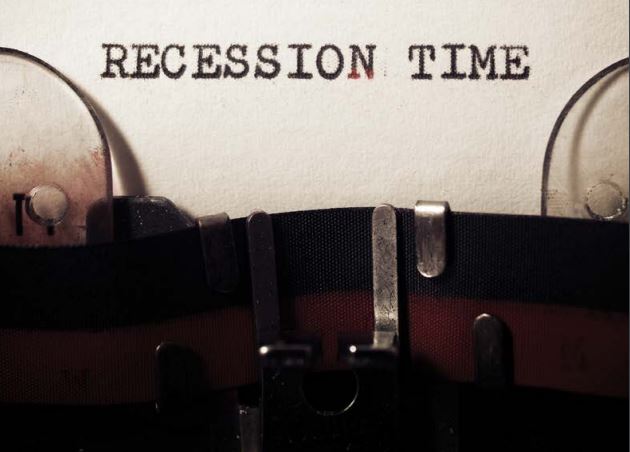The Global recession has slowed down the sales of mattresses in the mattress market. Is the global recession going to impact the Indian bedding industry? What are the factors getting affected due to global recession? Here is a glimpse of the mattress industry’s drop in recession fears.
When you hear that the world is reeling with gloomy news where Sensex, nifty, economy and Gross Domestic Product (GDP) are declining, you can see a pattern to an extended period of insecurity and instability in different segments of the market. Such patterns have the chance of a global recession which causes significant variation between geographies and industries.
This has affected the cost of living and tightened the financial conditions across various regions. The global forecast is slowed down by 3.2 percent from 6.0 percent as per World Economic Forum and there is an expectation to decline till 2.7 percent in the year 2023. Since there has been a deepening impact of the great recession on the world economy from the year 2022 onwards, hence global economic activity is experiencing a sharper slowdown with inflation than expected.
The storm of the global recession has hit the global sales of the mattress market. There is a notable divergence in the expected impact of the mattress industry between high-and low-income countries. Soaring suppliers and raw material costs have disproportionately affected different countries of the world.
Depression of Mattresses due to Global Recession:
The global mattress market is a highly valuable segment of the global economy. The global mattress market is expected to reach USD 66.19 billion by 2029, with a CAGR of 6.70 percent during the forecast year 2022-2029. Being a crucial sector, the mattress industry generates $32 billion and creates the employment of 100,000 people in the United States alone.
However, being in a considerate position in the global economy has also been affected by the turmoil of the global recession. In 2009, the mattress market lost $1.3 billion in sales. The slowdown in global economic activity is broad–based and sharper than –expected even in the top 5 world mattress markets, which are Australia, Belgium, Brazil, Canada and China, where India holds 7th rank in the top 50 mattress markets.
The economic outlook of the global recession of the mattress industry depends upon the monetary policies framed by the top mattress market. The international trade flows, suppliers list of the mattress industry and profiles of the leading manufacturers have been affected more sharply than expected due to the price instability and alleviating pressure of cost of living.
In 2009, the mattress market lost $1.3 billion in sales. This was a direct result of the recession as people stopped buying new mattresses and started using their old ones for long periods of time. In other words, the impact of the global recession is breaking the growth and development of mattress industries.
“The storm of global recession has hit the global sales of the mattress market. There is a notable divergence in the expected impact of the mattress industry between high-and low-income countries. “
However, considering such challenges, the vendors are steadily focusing on innovation in product lines and launching new sets of mattresses for every individual. Businesses have spent much of the past decade scrambling to adapt to extraordinary circumstances, yet due to the global recession, many sectors are receiving huge set-ups.
Although branded mattress organizations are trying to improve and increase their sales and increase their market share by launching new products in the mattress market to deliver the best service and product to their consumers. In spite of that, being a traditionally adult-oriented industry, it is hard to consider all these parameters in designing and manufacturing and producing innovative products.
In one of the Wedbush articles, the researchers reported that the demand for mattresses is continuing to wane as the recent sales of the Summer of 2022 summer are negative due to the great recession. There is a reduction in consumer demand and the situation is worsening due to the increased prices of commodity costs and supply chain problems. Mattress players have been forced to invest more in their promotional activities and price cuts. They are in urgent need to devise their production, design innovation and marketing strategies, with the growing competition among mattress players.
Challenges of Mattress Industry in India due to global recession
Guneet Kaur, consultant, IIM – Lucknow Alumnus, conducted research on the global economy, and she stated that as India contributes a minute amount to the world exports and GDP, the trade route intends to impact the country’s economy. An impending global recession is expected to affect the world economy very soon. However, the Indian scenario is expected to be moderately affected due to its constant growth rate. Taming inflation without stimming growth needs to be taken care of, as it is the foremost one and needs a strong monetary policy.
She identified that the prominent market dynamics of the mattress industry that occurred due to the Covid-19 pandemic and e-commerce adoption have further driven the growth of this industry. The economy can be recovered with the magnitude and timely support of the government and where companies are standing in terms of corporate debt.
However, in the anticipated recession of 2023, Indian policymakers are confident about the growth prospects in the industry. Ahead of the budget, our Prime Minister told economists that India has openings in healthcare, which is the closest to the bedding sector.
In one of the findings, she related a correlation between health and mattresses, where she suggested that since our health sector is ever-growing, the industry is quite positive about the market rising. Even the demand for customized and luxury mattresses is expected to increase.
“If you consider two quarters of economic performance as recession, the existing data and surveys fail to comprehend the business generated. If we expect consumers to be conservative regarding their spending, they are not going to include health in their subsidized budget. Hence, retailers and manufacturers need not worry about the demand for mattresses.”

The global recession has changed the complete paradigm of the mattress market. This was a direct result of the recession as people stopped buying new mattresses and started using their old ones for long periods of time.
The Indian Mattress Industry comprises the type of raw material used, product application, type of market and distribution channel. The major players include Sleepwell, Kurl-on, Centuary, Duroflex, Peps, Springwell, Coirfoam, and Springfit. Some new entrants in the form of start-ups are also seen, like Wakefit, The Sleep Company, SleepyCat, and Flo. It has majorly gained impetus due to the rise in income levels and health consciousness amongst its citizens.
Brand expert Ratan Dubey mentioned that in India, a mattress is not just seen as a necessity but has also been conceptualized as a customized luxury product. It has gained relevance in the home décor and upholstered segment of every household. It is perceived not just as consumer durable, but rather as an indicator of the quality of life. Since the major share of the market originates from the unorganized sector, a new wave of buying mattresses online is also gaining momentum. There is a palpable shift seen in consumer awareness and willingness to spend on sleep solutions.
In one of her research Ratan Dubey from HCL and who has incidentally edited an interesting book on “Critical Reflection and Strategies for New Expectations”, observes that despite these challenges, the future of the mattress market looks bright. “The industry is expected to grow at a compound annual growth rate of 5 percent between 2016 and 2021. This growth will be driven by an increase in demand from emerging markets such as China and India, as well as by continued innovation within the industry. So, while the global recession may have caused some short-term pain for the mattress market, it is clear that this industry still has a lot of room to grow in the years ahead.”
Is Global Recession Contagious?
The widespread concern about the economic slowdown is
- The global forecast is slowed down by 3.2 percent from 6.0 percent as per World Economic Forum and there is an expectation to decline till 2.7 percent in the year 2023. Since there has been a deepening impact of the great recession on the world economy from the year 2022 onwards, hence global economic activity is experiencing a sharper slowdown with inflation than expected.
- The vendors are steadily focusing on innovation in product lines and launching new sets of mattresses for every individual. Businesses have spent much of the past decade scrambling to adapt to extraordinary circumstances, yet due to the global recession, many sectors are receiving huge set-ups.
- Branded mattress organizations are trying to improve and increase their sales and increase their market share by launching new products in the mattress market to deliver the best service and product to their consumers.
- In one of the findings by Guneet Kaur, she related a correlation between health and mattresses, where she suggested that since our health sector is evergrowing, the industry is quite positive about the market rising. Even the demand for customized and luxury mattresses is expected to increase.
- The major share of the market originates from the unorganized sector, a new wave of buying mattresses online is also gaining momentum. There is a palpable shift seen in consumer awareness and willingness to spend on sleep solutions.
- Strong brand recognition, diversification of the products and a vast distribution network intensified the market recognition of the brand among market players.
- With healthy competition within the sector, substantial warranties and multiple distribution channels, the sector has grown steadily with a CAGR of 11 percent in the last five years, and is expected to continue with the same trend in the near future.
- Since consumers across the world are inculcating a healthy lifestyle, the mattress industry has a plethora of opportunities to create new avenues and preferences for a comfortable, convenient, luxurious and lively lifestyle.
- Due to the great recession, global mattress consumers are evolving and vigilant of their comfort, price-sensitive, durability and recommended mattresses which come with a long guarantee period.
“The global recession has changed the complete paradigm of the mattress market. This was a direct result of the recession as people stopped buying new mattresses and started using their old ones for longer periods of time. “
not a hoax. With the downturn in the global economy, the real estate and hospitality sectors have faced disruption. This has created a vacuum for mattress players.
Shweta Tripathi, Director of the Society of Rural Urban and Tribal Initiative, stated that the bedding industry might not be interested in providing innovative products to customers, but is definitely targeting a good night’s sleep for them. Just as part of the post-cure effect, the hospitality sector bounced back when people were done with restrictions and lockdowns. It is highly anticipated that getting good sleep will outweigh the recession. The mattress industry is also found to be working on providing value to the end-user and enjoying the camaraderie that comes within. This might be a challenging year but the optimism surrounding the sector doesn’t fade out.
Guneet Kaur, Faculty of Jaipuria Institute of Management, Ghaziabad, had done research on Internal Branding and Intention to stay, observing that one of the key drivers of mattress sales is the building of new houses and colonies. In her empirical research, she found that the notion of mattress sales is also dependent on the house loan rates provided by banks and other financial bodies. But because of the strong positioning of the product by brands like Sleepwell, a different approach is expected when it comes to consumer behaviour. Today, every urban consumer is well aware of health complications and does not want to live an inefficient lifestyle.
2023 is a pivotal year for the global economy and many experts are busy analysing the impact the Ukraine war might have on the West. But with an ever-growing population, a country like India does not worry about consumer demand. The lower and lower-middle income group might cut down spending on products like mattresses, but the middle, middle-higher and higher segment is expected to take care of their health concerns.
Also, marketers need to bear the circumstances by understanding the need and selling the requirements i.e. ‘sleep and health’, as promoting the mattress might not be very feasible for all sets of consumers during a global recession. Consumer goods companies must be active in new platforms and formats to keep up. Branded mattress organizations need to be highly cautious and proactive in establishing themselves during a pandemic. Omni channel marketing, home delivery, guarantee, warranty, and payment options are a few accelerated demands across the world.
Although the global recession has hit the economy and has changed the paradigm of the mattress industry, there is a significant increase in the product demand from the real estate sector and the tourism sector too. However, with the advent of technology, consumers are doing a lot of reading & research through e-commerce. Strong brand recognition, diversification of the products and a vast distribution network intensified the market recognition of the brand among market players. Although the mattress market is receiving recognition in the global market even during a global recession, marketers need to promote their products with innovative marketing strategies.
Revenue is vanity and Profit is sanity
However, the global recession has hit the mattress market hard, yet the mattress industry is at the juncture of spurring growth and changing customer dynamics and technological innovations. Today’s mattress manufacturing organizations are working hard to fulfil increasing demands for enhanced products and sustainability. Today, mattresses are to sleep what skin is to the body. Today, the consumer wants a quality of life that can come from a calm mind. With healthy competition within the sector, substantial warranties and multiple distribution channels, the sector has grown steadily with a CAGR of 11 percent in the last five years, and is expected to continue with the same trend in the near future.
Also, with the increase in disposable income, people are spending more on luxury products such as mattresses. The rising health consciousness is also driving the growth of the market as people are becoming more aware of the importance of a good night’s sleep. The changing lifestyle is another factor that is contributing to the growth of the market as people are now opting for more comfortable and ergonomic products.
The Indian mattress market is highly fragmented with a large number of local and regional players. Some of the key players in the market are Kurl-on, Sleepwell, Duroflex, Peps, Sleepycat and Centuary. The mattress market in India is expected to continue its growth trajectory in the years ahead, driven by rising disposable income, increasing health consciousness, and changing consumer lifestyles.
Although the outlook is unwelcoming and uncertain, there would be stability and improvement in the potential bright spots, which include the easing of inflationary pressures and consumer sentiment including the mattress industry. Despite the cost of living crisis affecting many individuals, consumers are highly cautious about their health. The market is progressing every day with the refinement of technologies. Ironically, the USP of the mattress industry is to design a solution that consumers haven’t even thought of.
Since consumers across the world are inculcating a healthy lifestyle, the mattress industry has a plethora of opportunities to create new avenues and preferences for a comfortable, convenient, luxurious and lively lifestyle. The magnifying range of innovation in design and price instability need to be decoded to be protected from the global recession, as these are the major concerns specifically for mattresses.
Due to the great recession, global mattress consumers are evolving and vigilant of their comfort, price-sensitive, durability and recommended mattresses which come with a long guarantee period. This opens an opportunity for Indian mattress players, as they may enter into unconventional methods and innovate marketing strategies to promote the core and augmented parts of their mattresses.
A collaboration of all the tech-savvy consumers and online/ offline media to hold various health awareness campaigns may bring brand loyalty, product innovation, customer satisfaction and need-based mattresses. The objective of this collaboration is to create sustainability opportunities for mattress players.


